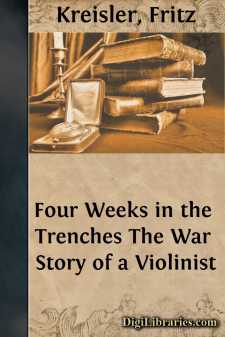Categories
- Antiques & Collectibles 13
- Architecture 36
- Art 48
- Bibles 22
- Biography & Autobiography 815
- Body, Mind & Spirit 144
- Business & Economics 28
- Children's Books 18
- Children's Fiction 14
- Computers 4
- Cooking 94
- Crafts & Hobbies 4
- Drama 346
- Education 58
- Family & Relationships 59
- Fiction 11834
- Games 19
- Gardening 17
- Health & Fitness 34
- History 1378
- House & Home 1
- Humor 147
- Juvenile Fiction 1873
- Juvenile Nonfiction 202
- Language Arts & Disciplines 89
- Law 16
- Literary Collections 686
- Literary Criticism 179
- Mathematics 13
- Medical 41
- Music 40
- Nature 179
- Non-Classifiable 1768
- Performing Arts 7
- Periodicals 1453
- Philosophy 65
- Photography 2
- Poetry 896
- Political Science 203
- Psychology 44
- Reference 154
- Religion 515
- Science 126
- Self-Help 85
- Social Science 83
- Sports & Recreation 34
- Study Aids 3
- Technology & Engineering 59
- Transportation 23
- Travel 463
- True Crime 29
Our website is made possible by displaying online advertisements to our visitors.
Please consider supporting us by disabling your ad blocker.
Four Weeks in the Trenches The War Story of a Violinist
by: Fritz Kreisler
Categories:
Description:
Excerpt
I
In trying to recall my impressions during my short war duty as an officer in the Austrian Army, I find that my recollections of this period are very uneven and confused. Some of the experiences stand out with absolute clearness; others, however, are blurred. Two or three events which took place in different localities seem merged into one, while in other instances recollection of the chronological order of things is missing. This curious indifference of the memory to values of time and space may be due to the extraordinary physical and mental stress under which the impressions I am trying to chronicle were received. The same state of mind I find is rather characteristic of most people I have met who were in the war. It should not be forgotten, too, that the gigantic upheaval which changed the fundamental condition of life overnight and threatened the very existence of nations naturally dwarfed the individual into nothingness, and the existing interest in the common welfare left practically no room for personal considerations. Then again, at the front, the extreme uncertainty of the morrow tended to lessen the interest in the details of to-day; consequently I may have missed a great many interesting happenings alongside of me which I would have wanted to note under other circumstances. One gets into a strange psychological, almost hypnotic, state of mind while on the firing line which probably prevents the mind's eye from observing and noticing things in a normal way. This accounts, perhaps, for some blank spaces in my memory. Besides, I went out completely resigned to my fate, without much thought for the future. It never occurred to me that I might ever want to write my experiences, and consequently I failed to take notes or to establish certain mnemo-technical landmarks by the aid of which I might now be able to reconstruct all details. I am, therefore, reduced to present an incoherent and rather piecemeal narrative of such episodes as forcibly impressed themselves upon my mind and left an ineradicable mark upon my memory.
The outbreak of the war found my wife and me in Switzerland, where we were taking a cure. On the 31st of July, on opening the paper, I read that the Third Army Corps, to which my regiment (which is stationed in Graz) belonged, had received an order for mobilization.
Although I had resigned my commission as an officer two years before, I immediately left Switzerland, accompanied by my wife, in order to report for duty. As it happened, a wire reached me a day later calling me to the colors.
We went by way of Munich. It was the first day of the declaration of the state of war in Germany. Intense excitement prevailed. In Munich all traffic was stopped; no trains were running except for military purposes. It was only due to the fact that I revealed my intention of rejoining my regiment in Austria that I was able to pass through at all, but by both the civil and military authorities in Bavaria I was shown the greatest possible consideration and passed through as soon as possible....


